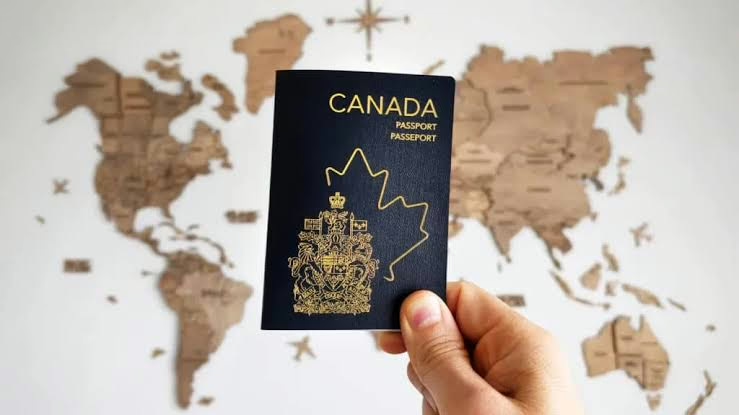By: Sunday Ameh
Canada has maintained its position among the world’s most powerful passports, according to the October 2025 Henley Passport Index, even as the United States dropped out of the global top ten for the first time in two decades.
The latest ranking places Canada in ninth position, granting its citizens visa-free access to 183 destinations worldwide. This marks a slight decline from July 2025, when the Canadian passport ranked eighth with access to 184 destinations.
Despite the minor drop, the report described Canada’s passport as one of the most desirable in the world, highlighting the country’s strong diplomatic relationships and global reputation.
In contrast, the U.S. passport fell to 12th place, offering visa-free entry to only 180 destinations. Analysts attribute the decline to reduced reciprocity agreements and a slowdown in the expansion of international travel arrangements.
A decade ago, in 2014, the United States held the top position in the Henley Index, but the steady erosion of travel privileges and shifting foreign policy have impacted its global mobility.
The index, which evaluates 199 passports across 227 destinations, uses data from the International Air Transport Association (IATA) to determine visa-free access levels.
Asian countries dominate the 2025 list, with Singapore, South Korea, and Japan taking the top three spots. European nations such as Germany, Italy, and Spain also featured prominently among the top five.
Below is the Top 10 ranking for October 2025:
Singapore – 193 destinations
South Korea – 190 destinations
Japan – 189 destinations
Germany, Italy, Luxembourg, Spain, Switzerland – 188 destinations
Austria, Belgium, Denmark, Finland, France, Ireland, Netherlands – 187 destinations
Greece, Hungary, New Zealand, Norway, Portugal, Sweden – 186 destinations
Australia, Czechia, Malta, Poland – 185 destinations
Croatia, Estonia, Slovakia, Slovenia, UAE, United Kingdom – 184 destinations
Canada – 183 destinations
Latvia – 182 destinations
Experts note that Canada’s passport remains a symbol of prestige, ensuring high mobility for its citizens and reinforcing the attractiveness of Canadian citizenship.
Meanwhile, the decline of Western countries like the U.S. and U.K. reflects a shift in global travel power toward Asia, driven by stronger diplomatic cooperation and reciprocal visa arrangements.
The report concludes that “global mobility is becoming more balanced,” emphasizing that countries embracing openness and international partnerships continue to gain ground, while those with restrictive policies risk losing travel influence.











Leave a Reply